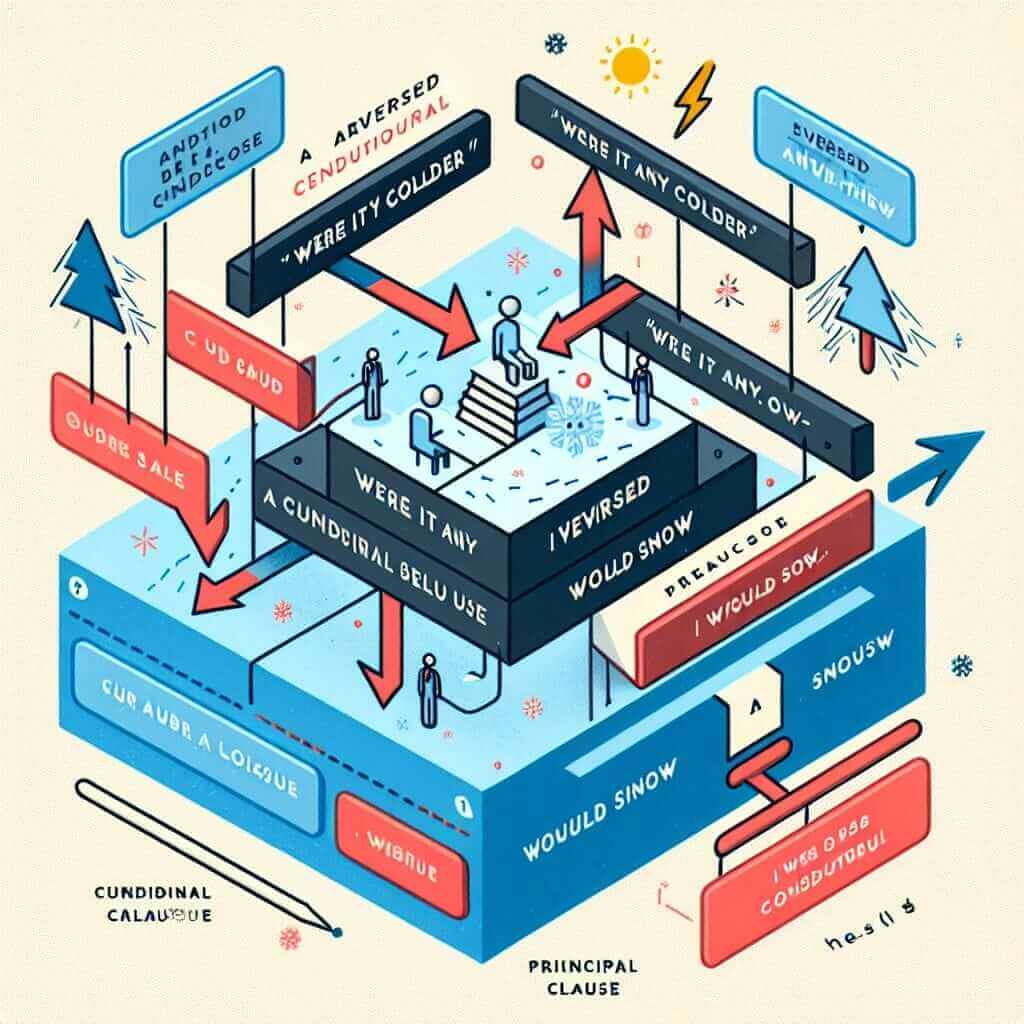“Were it any colder, it would snow” – this statement might seem unusual at first glance, but it represents a sophisticated grammatical structure that can significantly enhance your IELTS writing and speaking scores. This article delves into this inverted conditional structure, providing you with the knowledge and tools to use it effectively in your IELTS exam.
Let’s consider a few examples of how this structure might appear in different sections of the IELTS:
Speaking Part 3:
Examiner: “Do you think climate change is a serious problem?”
You: “Absolutely. The weather patterns are becoming increasingly erratic. Were it any warmer, we might start seeing more extreme weather events like hurricanes and droughts.”
Writing Task 2:
Topic: Some people believe that economic progress is more important than environmental protection. To what extent do you agree or disagree?
Your essay: “While economic development is undoubtedly crucial, neglecting environmental protection is a dangerous path. Were we to prioritize economic growth at all costs, the consequences for our planet would be disastrous.“
These examples demonstrate how this structure allows you to express hypothetical situations and their consequences with conciseness and a touch of formality.
Understanding Inverted Conditionals
The phrase “Were it any colder, it would snow” belongs to a category of conditional sentences known as inverted conditionals or conditionals with inversion. These structures add a layer of formality and sophistication to your writing and speaking. They are particularly useful for expressing hypothetical situations and their likely consequences.
Structure and Usage
Inverted conditionals typically follow this form:
Were + subject + to + verb (base form)…, subject + would/could/might + verb (base form).
OR
Had + subject + past participle…, subject + would/could/might + verb (base form).
Let’s break down the structure of “Were it any colder, it would snow”:
- “Were it any colder”: This is the conditional clause, signifying a hypothetical situation where the weather is even colder than it currently is. Notice the inversion – the verb “were” comes before the subject “it.” This inversion eliminates the need for the conjunction “if,” lending the sentence a more formal tone.
- “it would snow”: This is the main clause, outlining the consequence of the hypothetical situation. If the weather were indeed colder, then snow would be the result.
Here are more examples to illustrate this structure:
- Were the government to invest more in renewable energy, carbon emissions would decrease significantly. (Hypothetical situation: increased investment in renewable energy; Consequence: significant decrease in carbon emissions)
- Had I known about the traffic jam, I would have left earlier. (Hypothetical situation: prior knowledge of the traffic jam; Consequence: leaving earlier)

Using Inverted Conditionals in IELTS
While inverted conditionals are less common in everyday speech, using them appropriately in your IELTS writing and speaking can demonstrate a strong command of grammar and vocabulary. Here’s how you can effectively incorporate them:
Writing Task 2:
- Expressing hypothetical situations and consequences:
- “Were deforestation to continue at its current rate, the world would face dire ecological consequences.”
- “Had the international community acted sooner, the conflict might have been averted.”
Speaking Part 3:
- Responding to hypothetical questions:
- “If you could solve one global problem, what would it be?”
- “Well, were I in a position to do so, I would prioritize addressing climate change.”
- Speculating on future possibilities:
- “What do you think the world will be like in 50 years?”
- “It’s hard to say for sure, but were technology to advance at its current pace, we might see significant changes in many aspects of our lives.”
Common Mistakes to Avoid
Here are some common pitfalls to avoid when using inverted conditionals:
- Incorrect verb tense: Ensure that the verb tenses in both clauses are consistent with the hypothetical situation being described.
- Incorrect: Were I to win the lottery, I buy a big house.
- Correct: Were I to win the lottery, I would buy a big house.
- Overuse: While effective, using inverted conditionals too frequently can make your writing or speaking sound overly formal or even unnatural. Use them judiciously to emphasize key points.
Conclusion
Mastering inverted conditionals, like the structure found in “Were it any colder, it would snow,” equips you with a valuable grammatical tool to enhance your IELTS performance. By understanding its form, function, and appropriate usage, you can express complex ideas with clarity, conciseness, and a touch of sophistication, ultimately boosting your scores in both the writing and speaking sections of the exam. Remember to practice incorporating this structure into your writing and speaking practice to gain confidence and fluency.